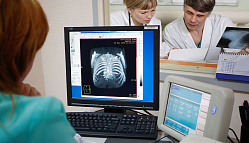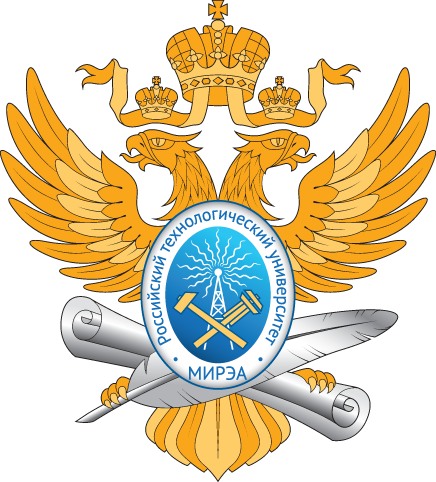12.03.04 Biotechnical systems and technologies

This area of instruction should appeal to those interested in researching, developing and designing biotechnical systems and technologies. Students explore: medical and biological instruments, systems and facilities; methods and techniques of biomedical research; automated biomedical data processing systems; computer-aided design and information support systems for biotechnical systems and technologies; biotechnical systems and technologies for the public health sector.
Level of education:
Bachelor’s degree
Form of training:
Full-time (daytime)
Venue of training:
Moscow
Entrance exams:
— Mathematics (major)
— Russian language
— Physics/Information science and ICT
— Russian language
— Physics/Information science and ICT
Programs, specializations:
Computer systems and techniques to process medical, biological and environmental data

Biocybernetics studies the general laws of information transfer, processing and storage in biological systems, and model the structure and behavioral patterns of living systems. Such modeling includes creation of artificial systems reproducing certain vital activities of organisms, their internal connections and relations.
The curriculum provides students with theoretical knowledge and practical skills in the development, operation and maintenance of biomedical equipment, biotechnical systems and technologies associated with the monitoring and management of living systems and maintenance of people’s working conditions.
The curriculum provides students with theoretical knowledge and practical skills in the development, operation and maintenance of biomedical equipment, biotechnical systems and technologies associated with the monitoring and management of living systems and maintenance of people’s working conditions.
Alumni can be employed as
- computer system engineer and analyst
- developer and integrator of biotechnical systems and technologies for medical, environmental and biometric purposes
- researcher in medical data processing based on modern information technologies and tools
- researcher in experimental biomedical data analysis
- biomedical research implementation engineer
- information processing engineer for medical equipment market projections
Program subjects
- Fundamentals of biology
- Human anatomy and physiology
- Biochemistry
- Biophysics
- Biomedical signal processing and analysis techniques
- Biomedical research automation
- Structural materials and biomaterials
- Analog and digital converters in medical equipment
- Microprocessor-based devices in biotechnical systems
- Medical sensors and electrodes
- Medical databases and expert systems
- Bioprocess and system modeling
- Diagnostic testing techniques and effects of biomechanical therapies
- Fundamentals of medical device and instrument design
- Fundamentals of interaction between physical fields and bioobjects
- Biotechnical system units and components
- Medical device and equipment design systems
- Life support and rehabilitation systems
- Functional diagnosis equipment
- Biomedical analytical technology
- Surgical and therapeutic equipment
- Cytology
- Radiobiology
- Technical design of medical equipment
- Telehealth
Biocybernetic Systems and Technologies Department
- Educational Activity
-
Institutes
- Institute of Information Technologies
-
Institute of Artificial Intelligence
- About the Institute
- Institute Administration
- History of the Institute
-
Training programs
- Bachelor's Degree Programs
-
Master's Degree Programs
- 01.04.02 Applied mathematics and information science
- 09.04.01. Informatics and computer engineering
- 12.04.04 Biotechnical systems and technologies
- 15.04.04 Automation of technological processes and production
- 15.04.06 Mechatronics and robotics
- 27.04.03 System analysis and management
- 27.04.04 Engineering system control
- Infrastructure
- Alumni
- Contacts
- Institute for Cybersecurity and Digital Technologies
-
Institute for Advanced Technologies and Industrial Programming
- About the Institute
- Institute Administration
- History of the Institute
-
Training programs
-
Bachelor's Degree Programs
- 09.03.02 Information systems and technologies
- 11.03.04 Electronics and nanoelectronics
- 12.03.05 Laser technology and laser techniques
- 15.03.01 Mechanical engineering
- 22.03.01 Materials science and technology
- 27.03.01 Standardization and metrology
- 28.03.01 Nanotechnology and microsystems engineering
- 29.03.04 Decorative material working techniques
- 54.03.01 Graphic design
-
Master's Degree Programs
- 09.04.02. Information systems and technologies
- 11.04.04 Electronics and nanoelectronics
- 12.04.02 Optical engineering
- 15.04.01 Mechanical engineering
- 22.04.01 Materials science and technology
- 27.04.01 Standardization and metrology
- 29.04.04 Decorative material working techniques
- 54.04.01 Graphic design
-
Bachelor's Degree Programs
- Infrastructure
- Alumni
- Contacts
- Institute of Radio Electronics and Informatics
- Institute of Management Technologies
- Lomonosov Institute of Fine Chemical Technologies
- Institute of International Education
-
Mega-Laboratories
- Industry 4.0: Digital Robotized Production center
- Laboratory of Intelligent Autonomous and Multi-Agent Robotic Systems
- Laboratory of Analytic, Modeling, Design and Digital Prototyping Technologies
- Motion Capture Laboratory
- Center of Innovative Technologies in Microelectronics
- Catalytic and Mass Exchange Processes center
- Cell Technologies Megalaboratory operating on the basis of the Department of Chemistry and Technology of Biologically Active Compounds, Medical and Organic Chemistry named after N.A. Preobrazhensky
- Center for Cybersports Robotics
- Centre for Additive Polymer Technologies
- Elastomers. Thermoplastics. Technologies Educational and Research Center operating on the basis of the Department of Chemistry and Technology of Elastomer Processing named after F.F. Koshelev
- General Biotechnology Megalaboratory
- Immersive Technologies Laboratory
- Import Substitution of Information Technologies Educational and scientific testing complex
- Laboratory for the Development and Transfer of Microfluidic Technologies (DTMT)
- Mobile Robotics University Laboratory
- Rare and Precious Metals Research and Technological Center operating on the basis of the Department of Chemistry and Technology of Rare Elements named after K.A. Bolshakov
- Research and Educational Center for Biosynthesis, Isolation and Purification of Monoclonal Antibodies (Generium)
- Smart Production Systems Educational and Scientific Center
- Techno-coworking
- Technocoworking
- Radio electronic Technologies Megalaboratory
- Situation center
- Scientific and Educational Center for Medical Radiology and Dosimetry
- Educational and Research Center for Space Monitoring ("CosMoCenter")
- Laboratory of Geographic Information Systems and Technologies
- Bachelor's Degree Programs
- Master's Degree Programs
- Additional Education Programs
- Physical Education and Sports
© 2024 MIREA - Russian Technological University
